Acwa Power tightens grip on GCC water
26 January 2024

This report also includes: Mena water delivers exceptional growth
Time-bound sustainability objectives and improving economic conditions kept the GCC region’s water sector projects buoyant in 2023.
This coincided with the key milestones achieved by independent water producer (IWP) contracts awarded between 2020 and 2021, which reached either the commissioning or commercial operation stages in 2023 following two years of disruption caused by the Covid-19 pandemic.
The UAE awarded three IWP contracts in 2023 and Saudi Arabia awarded one. This was a remarkable recovery considering that there was only one contract award in 2021 and none in 2022, barring the directly negotiated contract for the development of Shuaibah 3 in Saudi Arabia.
In contrast, there were no new awards for independent water and power producer (IWPP) projects – a model that worked successfully from the 1990s until the mid-2010s, when policies started to shift away from thermal desalination technologies and towards IWPs that rely on reverse osmosis technology for water treatment.

Source: MEED
IWP awards
The IWP contracts awarded in 2023 include Mirfa 2 and Shuweihat 4 in Abu Dhabi, Rabigh 4 in Saudi Arabia and Hassyan 1 in Dubai. The four IWP schemes have a total combined capacity of about 2.3 million cubic metres a day (cm/d).
The award of these contracts resulted in higher net and gross capacities for Saudi utility developer Acwa Power, France’s Engie and Spain-headquartered GS Inima, relative to the last MEED water developer ranking published in January 2023.
Acwa Power’s overall net capacity leapt by 20 per cent in 2023 to reach approximately 3.5 million cm/d. This resulted from its 40 per cent equity in Dubai’s Hassyan 1 IWP project, which has a capacity of over 818,000 cm/d; and its 45 per cent shareholding in the 600,000 cm/d Rabigh 4 IWP.
Engie likewise posted an impressive two-digit rise in terms of its net capacity, growing from 1.67 million cm/d to 1.87 million cm/d, thanks to its 40 per cent equity in the Mirfa 2 IWP project in Abu Dhabi.
The size of the two projects that Acwa Power won in 2023, however, meant it managed to further widen its lead over Engie and the other private water developers operating assets across the GCC states.
At 3.5 million cm/d, Acwa Power’s overall net capacity is equivalent to the total combined net capacity of the next five developers in the ranking: Malaysia’s Malakoff, Japan’s Marubeni and Sumitomo, and GS Inima, in addition to Engie.
The Saudi utility developer has also for the first time overtaken Engie in terms of gross water desalination capacity. As
of the end of 2023, its gross capacity crossed 7.7 million cm/d compared to Engie’s 7.0 cm/d.
In terms of ranking, GS Inima registered the most significant improvement among the top 10 private water developer companies, advancing three spots to rank fifth, having grown its net equity capacity nearly 50 per cent to reach close to 383,000 cm/d. This change takes into consideration that Kuwait’s Gulf Investment Corporation (GIC), which was included in the previous index, has been excluded this year due to its role as an investor rather than a developer of water desalination projects.
GS Inima will maintain a 60 per cent shareholding in Abu Dhabi’s Shuweihat 4 IWP scheme, which is expected to reach commercial operation by mid-2026.
Despite not having won any new contracts, Saudi Brothers Commercial Company and Abdulaziz al-Ajlan, both Riyadh-based, managed to land in the top 10 ranking of water developers this year, mainly due to the exclusion of both GIC and Water & Electricity Holding Company (Badeel), which is fully owned by Saudi Arabia’s Public Investment Fund.
Outlook
The next 12 months will likely be an active period for the water industry, particularly in Saudi Arabia.
This is mainly due to the target set by the kingdom’s Environment, Water & Agriculture Ministry to meet 92 per cent of Saudi Arabia’s water demand using desalinated water by 2030, to reduce reliance on ground and surface water.
Both Saudi Water Conversion Corporation, the world’s largest desalinator, which supplies 69 per cent of Saudi Arabia’s water, and Saudi Water Partnership Company (SWPC) will have to get “plants up and running as soon as possible to make this target”, says Robert Bryniak, CEO of Dubai-based Golden Sands Management Consulting.
Elsewhere – particularly in the UAE and, to a lesser extent, Oman – expiring contracted capacity and growing demand are expected to continue to drive the procurement of additional seawater reverse osmosis (SWRO) capacity.
The past few years have seen several international and local developers and investors enter the GCC’s water desalination market.
“The water industry could benefit by having more engineering, procurement and construction (EPC) contractors and developers, but I do not see this holding back procurers in launching new projects,” says Bryniak. “Having said that, there is definitely room for the water industry to accommodate more developers and EPC contractors.”
Tariff trend
Tariffs, or the long-term levelised costs that offtakers pay for water that private developers produce, are expected to trend upwards in 2024. This is due to higher interest rates and inflationary pressures on materials and supplies.
“These considerations, coupled with a limited number of experienced EPC contractors with excess contracting capacity, suggest that it will be tough seeing lower tariffs this year,” Bryniak says.
“We expect this trend due to the expected higher costs,” says another water desalination expert based in the UAE.
“The tariff for the Hassyan 1 IWP was low, but I see that as an anomaly,” says Bryniak, referring to the $cents 36.5 a cubic metre ($c/cm) tariff that Acwa Power proposed last year to develop the Hassyan 1 IWP in Dubai.
The previous tariff bid for the project was about 30 per cent lower than that proposed by Acwa Power last year, and it is likely that the bidder “had tremendous pressure to maintain a relatively low tariff to secure the project”, says Bryniak.
Future projects
SWPC issued the tender for the contract to develop the Jubail 4 and 6 IWP schemes on 1 January, and the tendering process is also under way for the Ras Mohaisen IWP. Both contracts are expected to be awarded before the end of this year.
In addition, SWPC has indicated that four more IWPs are expected to reach commercial operation by 2027, which implies that it could start seeking interest from developers for these projects in the next 12-24 months.
Under the latest plan, the Ras al-Khair 2 and 4, Al-Rais 2 and Tabuk 1 IWP projects will have a combined total capacity of 1.7 million cm/d.
In the UAE, Acwa Power is understood to be the sole bidder for the 400,000 cm/d Hamriyah IWP in Sharjah. The contract could be awarded in the first half of 2024.
In Abu Dhabi, the tendering process is under way for two SWRO plants that will be developed under one contract. The Abu Dhabi Islands SWRO projects will each have a capacity of 227,000 cm/d.
Kuwait’s two IWPPs – Al-Zour North 2 & 3 and Al-Khiran 1 – and the Facility E IWPP in Qatar include water desalination units with capacities of 695,000 cm/d and 454,000 cm/d, respectively.
MEED understands that an option is open for the bidders to use membrane technology for the desalination units of these planned facilities.
Unstoppable
Acwa Power thus appears unstoppable given its plans to further consolidate its presence in the region’s water industry, and pursue new technologies and partnerships, as its CEO Marco Arcelli told MEED in July last year.
The company plans to work with Japanese membrane technology provider Toray Industries to explore energy-saving technologies for SWRO. It is also working with other suppliers located in the US, Japan and China, as well as with Saudi Arabia’s King Abdullah University of Science & Technology to explore energy-efficient solutions for treating seawater.
The scale of the IWP projects Acwa Power has won between 2019 and 2023 enables it to outprice key competitors, or bid for projects deemed too risky by other developers.
The firm’s offer to develop Rabigh 4 for $c0.458/cm, for instance, was lower than what some of its competitors anticipated Acwa Power was capable of offering, although it lost Mirfa 2 to Engie a few months earlier.
As it is, Acwa Power won five of the 12 IWP contracts that were tendered and awarded in Saudi Arabia, the UAE and Oman during the past four years, equivalent to more than 56 per cent of the gross capacity awarded over that period.
Other developers should take note as they establish strategies to win more contracts in the future and potentially slow down Acwa Power's three-year sector dominance.
Exclusive from Meed
-
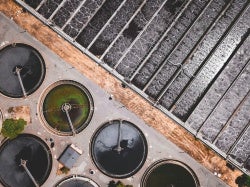 Bidders await NWC decision on sewage contract
Bidders await NWC decision on sewage contract17 February 2026
-
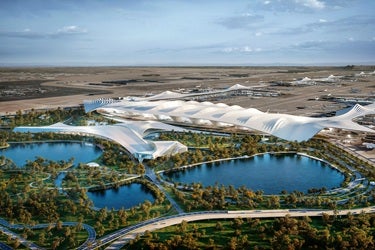 Dubai tenders Al-Maktoum airport superstructure
Dubai tenders Al-Maktoum airport superstructure17 February 2026
-
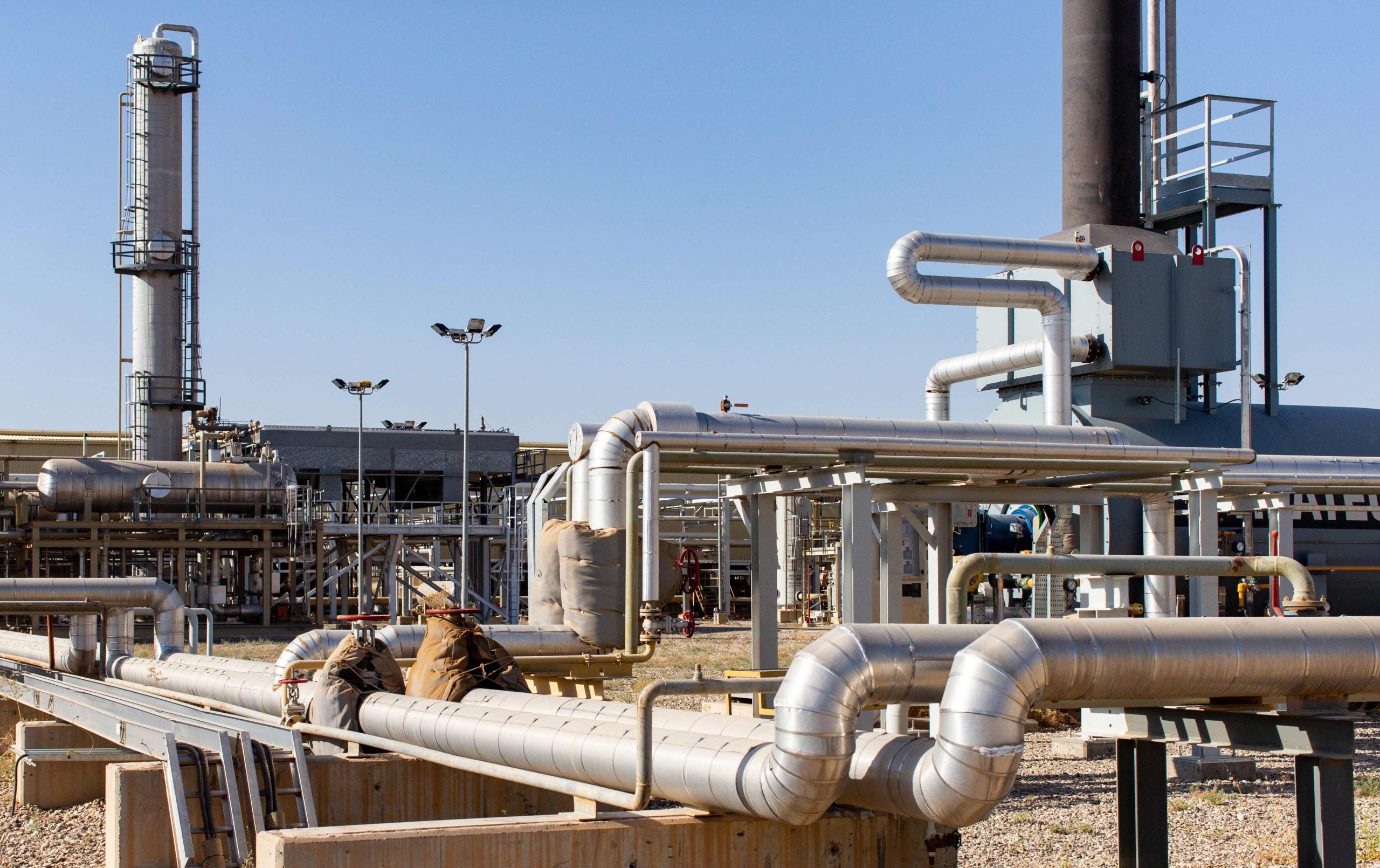 Contractors submit revised prices for Habshan 7 project
Contractors submit revised prices for Habshan 7 project17 February 2026
-
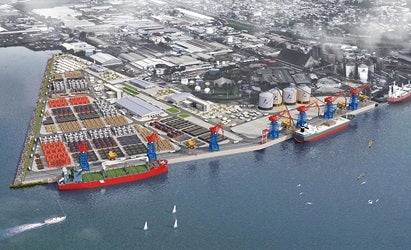 AD Ports to develop Douala port in Cameroon
AD Ports to develop Douala port in Cameroon16 February 2026
-
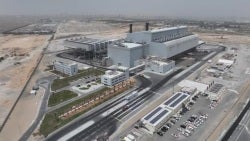 Dubai tenders Warsan waste-to-energy consultancy contract
Dubai tenders Warsan waste-to-energy consultancy contract16 February 2026
All of this is only 1% of what MEED.com has to offer
Subscribe now and unlock all the 153,671 articles on MEED.com
- All the latest news, data, and market intelligence across MENA at your fingerprints
- First-hand updates and inside information on projects, clients and competitors that matter to you
- 20 years' archive of information, data, and news for you to access at your convenience
- Strategize to succeed and minimise risks with timely analysis of current and future market trends

Related Articles
-
 Bidders await NWC decision on sewage contract
Bidders await NWC decision on sewage contract17 February 2026

Saudi Arabia’s National Water Company (NWC) is evaluating five bids for package 12 of its long-term operations and maintenance (LTOM12) sewage treatment programme.
Known as the North Western B Cluster, LTOM12 forms part of the second phase of NWC’s rehabilitation of sewage treatment plants programme.
The contract covers the construction and upgrade of seven sewage treatment plants with a combined capacity of about 162,000 cubic metres a day (cm/d).
As MEED understands, the companies that have submitted proposals include:
- Alkhorayef Water & Power Technologies (Saudi Arabia)
- Civil Works Company (Saudi Arabia)
- Miahona (Saudi Arabia)
- Beijing Enterprises Water Group – BEWG (Hong Kong)
- Al-Yamama (Saudi Arabia)
Earlier this month, MEED exclusively reported that six contractors are competing for the North Western A Cluster Sewage Treatment Plants Package 11 (LTOM11), which has an estimated value of about $211m.
The project involves the construction and upgrade of two sewage treatment plants with a combined capacity of about 440,000 cm/d.
The scheme is being procured on an engineering, procurement and construction (EPC) basis with a long-term operations component.
It is understood that contracts for LTOM11 and LTOM12 will be awarded in May.
In January, a consortium of United Water (China), Prosus Energy (UAE) and Armada Holding (Saudi Arabia) won the main contract for the Northern Cluster Sewage Treatment Plants Package 10 (LTOM10).
This contract was the first to be awarded under the second phase of NWC’s rehabilitation of sewage treatment plants programme.
NWC previously awarded $2.7bn-worth of contracts for the first phase of its LTOM programme. This comprises nine packages covering the treatment of 4.6 million cm/d of sewage water for the next 15 years.
https://image.digitalinsightresearch.in/uploads/NewsArticle/15670141/main.jpg -
 Dubai tenders Al-Maktoum airport superstructure
Dubai tenders Al-Maktoum airport superstructure17 February 2026

Dubai Aviation Engineering Projects (DAEP) has tendered three packages covering superstructure works for the first phase of the expansion of Al-Maktoum International airport.
Interested bidders have until 23 March to submit their proposals.
MEED understands that the selected contractor will undertake superstructure works on three packages:
- West Terminal and concourse one
- Concourse two
- Concourse three
Construction on these packages began in November last year, when DAEP formally selected a contractor to deliver the substructure works.
According to an official description on DAEP’s website, the expanded airport’s West Terminal will be a seven-level, 800,000-square-metre facility with an annual capacity of 45 million passengers.
It will be the second of three terminals at Al-Maktoum International airport, linked to the airside by a 14-station automated people-mover (APM) system.
In August, MEED exclusively reported that DAEP had received bids from firms to build the APM at the airport.
The system will run under the apron of the entire airfield and the airport’s terminals. It will consist of several tracks, taking passengers from the terminals to the concourses.
Four underground stations will be built as part of the first phase. The overall plan includes 14 stations across the airport.
The airport’s construction is planned to be undertaken in three phases. The airport will cover an area of 70 square kilometres (sq km) south of Dubai and will have five parallel runways, five terminal buildings and 400 aircraft gates.
It will be five times the size of the existing Dubai International airport and will have the world’s largest passenger-handling capacity of 260 million passengers a year. For cargo, it will have the capacity to handle 12 million tonnes a year.
Construction progress
Construction on the first phase has already begun. In May last year, MEED exclusively reported that DAEP had awarded a AED1bn ($272m) deal to UAE firm Binladin Contracting Group to construct the second runway at the airport.
The enabling works on the terminal are also ongoing and are being undertaken by Abu Dhabi-based Tristar E&C.
Construction on the project’s first phase is expected to be completed by 2032.
The government approved the updated designs and timelines for its largest construction project in April 2024.
In a statement, the authorities said the plan is for all operations from Dubai International airport to be transferred to Al-Maktoum International within 10 years.
The statement added that the project will create housing demand for 1 million people around the airport.
In September 2024, MEED exclusively reported that a team comprising Austria’s Coop Himmelb(l)au and Lebanon’s Dar Al-Handasah had been confirmed as the lead masterplanning and design consultants on the expansion of Al-Maktoum airport.
Project history
The expansion of Al-Maktoum International, also known as Dubai World Central (DWC), is a long-standing project. It was officially launched in 2014, with a different design from the one approved in April 2024. At that time, it involved building the biggest airport in the world by 2050, with the capacity to handle 255 million passengers a year.
An initial phase, due to be completed in 2030, involved increasing the airport’s capacity to 130 million passengers a year. The development was to cover an area of 56 sq km.
Progress on the project slipped as the region grappled with the impact of lower oil prices and Dubai focused on developing the Expo 2020 site. Tendering for work on the project then stalled with the onset of the Covid-19 pandemic in early 2020.
https://image.digitalinsightresearch.in/uploads/NewsArticle/15669879/main.jpg -
 Contractors submit revised prices for Habshan 7 project
Contractors submit revised prices for Habshan 7 project17 February 2026

Adnoc Gas has received revised commercial proposals from contractors for engineering, procurement and construction (EPC) works on a major project to add a new gas processing train at its Habshan complex in Abu Dhabi.
Adnoc Gas, the natural gas processing business of Abu Dhabi National Oil Company (Adnoc Group), processes about 10 billion standard cubic feet a day (cf/d) of gas across several sites, including its Asab, Bab, Bu Hasa and Habshan facilities, as well as a natural gas liquids (NGL) fractionation plant at Ruwais.
The Habshan complex is one of the largest gas processing facilities in the UAE and across the Middle East and North Africa. Its output capacity is 6.1 billion cf/d. The complex comprises five trains and 14 processing units that receive gas feedstock from onshore and offshore fields in Abu Dhabi.
With Adnoc Group pressing ahead with its P5 programme to raise oil production potential to 5 million barrels a day by 2027, high volumes of associated gas are set to enter the grid.
The new train at the Habshan complex, which Adnoc Gas expects to commission in 2029, will play a key role in handling these additional gas volumes.
MEED previously reported that contractors had submitted commercial bids for the new Habshan 7 gas train project to Adnoc Gas by the deadline of 10 December.
Following an initial evaluation of commercial bids received, Adnoc Gas sought “best offers” from contractors for the project. Bidders submitted their revised prices by 6 February, according to sources.
The following contractors are understood to be competing for the Habshan 7 project’s main EPC contract, as per sources:
- Enppi (Egypt) / Petrojet (Egypt)
- Jereh (China)
- Larsen & Toubro Energy Hydrocarbon (India)
- Petrofac (UK)
- Sinopec (China)
- Wison Engineering (China)
MEED previously reported that contractors submitted technical bids for the project to Adnoc Gas by the deadline of 6 October.
Adnoc Gas intends to install the Habshan 7 train adjacent to the Habshan 5 train. This will enable the new train to utilise the ullage in the Habshan 5 sulphur recovery and tail gas treatment units and optimise operations.
The scope of work on the Habshan 7 gas train project covers the EPC of the following units:
- New high-pressure pipeline from the main Habshan complex to the new gas train
- Separation and condensate stabiliser unit
- Acid gas removal unit
- Mercury removal unit
- Deep NGL recovery unit
- Sales gas and residue gas compressor
- NGL product storage and transfer pump, as well as metering skid
- Utility units (IA, N2, PW, FW, steam generation, DM)
- Flare unit, to be located in Habshan 5 on common derrick
- Flare gas recovery package
- Water treatment package
- Non-process buildings, to be located outside the Habshan 5 train
- Power generation system
- NGL pipeline from Habshan 5 to Ruwais, based on an existing pipeline assessment
- Sales gas pipeline from Habshan 5 to sales gas network.
UK-headquartered Wood Group has performed the concept study and initial engineering design for the project.
The Habshan 7 gas train project represents the third phase of Adnoc Gas’ Rich Gas Development programme and is estimated to be valued at $3.5bn-$4bn, according to the company’s chief financial officer, Peter Van Driel.
In a recent call with journalists to discuss Adnoc Gas’ financial results for the full year and fourth quarter of 2025, Van Driel said Adnoc Gas expects to achieve a final investment decision on the Habshan 7 gas train project, which is designed to increase the company’s production of high-value liquids such as liquefied petroleum gas, naphtha and condensates, in the first quarter of 2026.
Adnoc Gas issued the main EPC tender for the new Habshan 7 gas train project to contractors between 5 and 8 August, MEED previously reported. It later extended the initial technical bid submission deadline from mid‑September to 6 October.
In April, MEED reported that Adnoc Gas had started an early engagement process with contractors for the EPC tendering phase of the Habshan 7 gas train project.
Prior to that, Adnoc Gas issued an expression of interest (EoI) document for the project in March, to which contractors submitted responses by 8 April.
Separately, Adnoc Gas also completed the EoI exercise for early civil and site preparation works on the Habshan 7 project in June, and is understood to have issued the main tender in the third quarter.
ALSO READ: Adnoc Gas stalls decision on Ruwais NGL project
https://image.digitalinsightresearch.in/uploads/NewsArticle/15663150/main5247.jpg -
 AD Ports to develop Douala port in Cameroon
AD Ports to develop Douala port in Cameroon16 February 2026
Abu Dhabi’s AD Ports Group and Africa Ports Development (APD) have signed an agreement to design, build and operate a new dry bulk terminal at the Port of Douala in Cameroon.
AD Ports Group will invest about AED320m ($87m) in the development of the terminal’s first phase, which will comprise two berths and more than 450 metres of quay wall, with an annual handling capacity of about 4 million tonnes of dry bulk cargo.
Construction is expected to begin this year, and the first phase is slated for completion in 2028.
The concession period is 30 years.
AD Ports Group has committed to long-term investments and operations across Africa, including in Egypt, Morocco, Tunisia, Kenya, Tanzania, Angola and the Republic of the Congo.
The latest announcement comes shortly after it signed an agreement with Jordan’s Aqaba Development Corporation (ADC) to manage and operate the Aqaba multipurpose port.
AD Ports will manage and operate the port under a 30-year concession agreement.
In December last year, AD Ports Group signed a shareholder agreement with Tajikistan’s private industrial firm Avesto Group to establish a new joint venture that will provide integrated logistics and freight forwarding services across Tajikistan.
Under the agreement, the joint venture will initially operate as an asset-light freight forwarder. It will have exclusive rights to consolidate and manage all freight and logistics activities across Avesto Group’s subsidiaries, while also offering services to third-party customers in the wider market.
https://image.digitalinsightresearch.in/uploads/NewsArticle/15661385/main.jpg -
 Dubai tenders Warsan waste-to-energy consultancy contract
Dubai tenders Warsan waste-to-energy consultancy contract16 February 2026
Dubai Municipality has issued a tender for consultancy services on the second phase of the Warsan waste-to-energy (WTE) plant.
The tender covers feasibility, procurement and construction supervision services for the project.
The bid submission deadline is 25 February.
The project relates to the planned expansion of the Warsan WTE plant in Dubai. The scheme has an estimated budget of $500m.
The facility will be located in Warsan 2, next to the Al-Aweer sewage treatment plant. As MEED understands, it will use treated wastewater from that facility.
The project scope includes construction of treatment lines, a boiler hall, waste bunkers, a flue gas treatment system, a main electrical station and associated infrastructure.
The contract duration is six years
Expansion strategy
The original Warsan WTE plant, Dubai’s first major WTE public-private partnership (PPP) project, reached full commercial operations in 2024.
Located in the Warsan area, the AED4bn ($1.1bn) facility treats 1.9 million tonnes of municipal solid waste annually, generating up to 220MW of thermal energy that is fed into the local grid.
In February 2023, state utility Dubai Electricity & Water Authority (Dewa) and Dubai Waste Management Company signed the power-purchase agreement (PPA) for the project.
Dubai Waste Management Company, the special-purpose vehicle implementing the scheme, reached financial close in June 2021 for the project.
The main contractor was a consortium of Belgium’s Besix Group and Hitachi Zosen Inova of Switzerland.
The expansion aligns with Dubai’s long-term waste strategy. In February 2022, the emirate approved a AED74.5bn budget covering waste management initiatives from 2021 to 2041.
The strategy promotes innovation in waste management, recycling and energy conservation. It anticipates private sector contributions of AED70.5bn, equivalent to about 95% of the total planned investment.
https://image.digitalinsightresearch.in/uploads/NewsArticle/15660272/main.jpg



